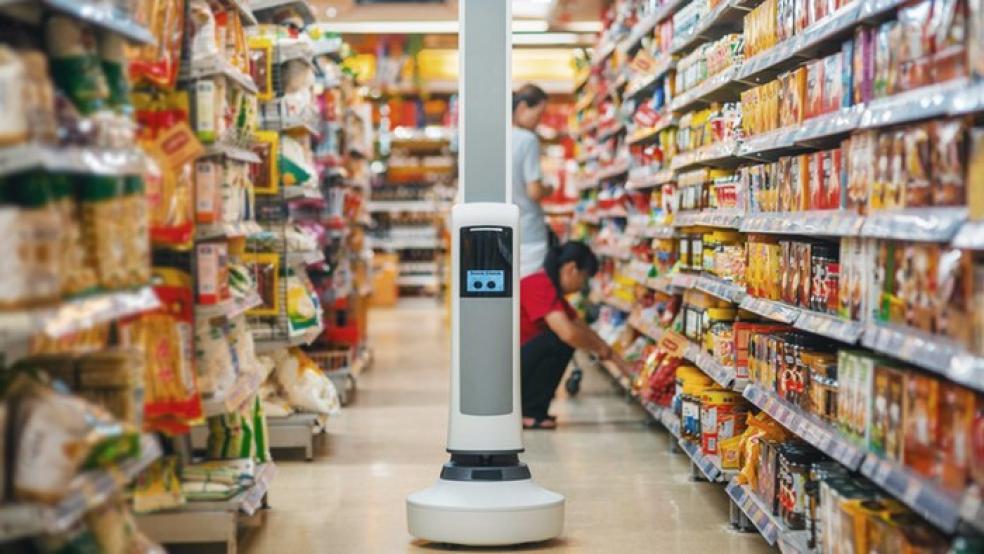A new type kind of retail worker might soon be showing up in the canned soup aisle.
Completely autonomous, Tally is an inventory-tracking robot that roams the aisles and determines when shelves are running low on inventory, if an item is stocked in the wrong spot or whether the prices on products are correct.
Related: The Ten Craziest Things Robots Can Do
Developed by a small startup called Simbe Robotics, the robot is the latest innovation in the effort to automate routine work in warehouses and retail stores. In a press release, the company’s CEO Brad Bogolea is careful to avoid saying the robot would replace human jobs, instead focusing on how using the robot will free up staff to focus on customer service. But most people know this is just the continuing evolution of an automated workforce.
Although restocking shelves is a dull and mundane task, it is hugely important. Out of stock items can cost retailers nearly $500 billion in lost revenue, according a report from the analyst firm IHL Services.
To combat this problem, retail stores typically employ humans to roam the aisles and manually take inventory, but this takes up an enormous amount of time. In a mid-sized store like Walgreens that sells between 10,000 and 20,000 products, an employee can spend 20 to 30 hours a week auditing everything.
One Tally robot can scan 15,000 items in one hour.
Related: 12 Jobs We’re Losing to Robots
Tally works by taking high-resolution pictures of every item on a store shelf. The collected data is sent securely to the cloud, where the server matches the image against a store’s files of what the shelf should look like and instantly updates the retailer.
If a shelf is running low on canned tuna, an employee can be dispatched to restock immediately.
The robot also has a number of features that will allow it be on the job while customers are in the store, including a number of sensors to avoid collisions and an internal measurement unit to detect any unusual activity.
Although the company wouldn’t disclose the name, one large retailer is already testing the device. Tally’s price also hasn’t been revealed, but the cost of manufacturing the device is around that of making an enterprise laptop.





